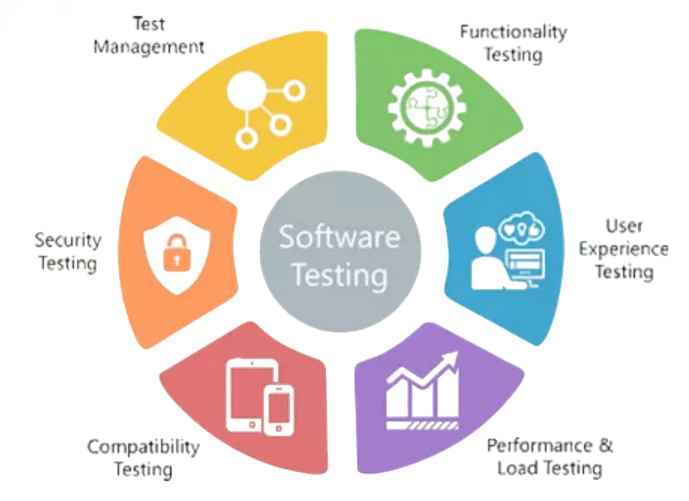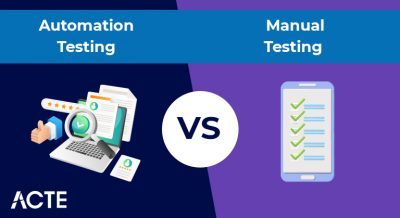
- Introduction to Software Testing Career
- Understanding Software Testing Fundamentals
- Skills Required for a Career in Software Testing
- Educational Qualifications and Certifications
- Different Roles and Career Paths in Software Testing
- How to Gain Practical Experience
- Tools and Technologies to Learn
- Tips to Build a Successful Career in Software Testing
Introduction to Software Testing Career
Software testing is a crucial component of the software development life cycle that plays a vital role in ensuring the delivery of high-quality, reliable, and efficient software products. As organizations across industries become increasingly dependent on software to drive their business operations, the demand for skilled software testers is growing at a rapid pace. Companies recognize that even minor software defects can lead to serious consequences such as security breaches, system failures, or financial losses. Therefore, investing in thorough and effective testing is more important than ever. A career in software testing offers a dynamic and intellectually stimulating environment that combines analytical thinking, problem-solving abilities, and technical expertise. It involves verifying and validating software to ensure it meets specified requirements and functions correctly under all conditions. Testing professionals can explore a wide range of roles based on their interests and strengths. These include manual testing, where test cases are executed without the use of automation tools, and automation testing, which involves writing scripts and using software tools to perform tests more efficiently. In addition, specialized areas such as performance testing, usability testing, mobile testing, and security testing provide ample opportunities for career growth and skill development. One of the key advantages of entering the software testing field is its accessibility to both fresh graduates and experienced professionals looking to switch careers. With the right training and certifications, anyone with a keen eye for detail and a passion for quality can succeed in this domain. As technology continues to evolve, software testers play a critical role in agile and DevOps environments. This makes software testing a future-proof career that offers long-term prospects, continuous learning, and the satisfaction of contributing to the development of robust and dependable software systems.
Are You Interested in Learning More About Software Testing? Sign Up For Our Software Testing Certification Training Today!
Understanding Software Testing Fundamentals
Before starting a career in software testing, it is essential to understand what the field entails and why it plays such a critical role in the software development process. Software Testing Fundamentals is the systematic process of evaluating a software application to identify defects, bugs, or inconsistencies. It ensures that the software meets the specified requirements and functions as intended across different environments and use cases. Effective testing contributes to the overall quality of the product by confirming its reliability, stability, and performance, ultimately leading to a better user experience. There are several types of software testing, each serving a specific purpose. Functional testing focuses on verifying that the software performs its intended functions correctly. Regression testing ensures that new updates or changes do not negatively impact existing features. Usability testing assesses how user-friendly and intuitive the application is. Performance testing evaluates how the software behaves under various conditions, such as high user load, while security testing helps detect vulnerabilities that could be exploited by malicious users. A well-rounded tester should be familiar with these types and understand when and how to apply them during the software development life cycle. In addition to mastering testing techniques, a strong foundation in software development methodologies is equally important.

Understanding approaches like Agile, Waterfall, and DevOps helps testers collaborate effectively with developers, product managers, and other stakeholders. These methodologies influence how testing is integrated into the development process, from early requirement analysis to final deployment and maintenance. By building a solid understanding of both technical skills and process frameworks, aspiring testers can position themselves for a successful and rewarding career in software testing.
Skills Required for a Career in Software Testing
- Attention to Detail: Successful testers must have a sharp eye for detail. Detecting subtle bugs and inconsistencies in software requires careful observation and a thorough approach to ensure no defect goes unnoticed.
- Analytical Thinking: Testers need strong analytical skills to understand complex software behavior. This ability helps in diagnosing issues, troubleshooting problems, and understanding the impact of bugs on the overall system.
- Communication Skills: Clear communication is essential in software testing. Testers must be able to document defects precisely and explain issues clearly to developers and other stakeholders, ensuring smooth collaboration and faster resolution.
- Technical Skills: A good tester should have foundational technical knowledge, including basic programming, database concepts, and familiarity with testing tools. These skills help in writing effective test cases and automating tests where necessary.
- Domain Knowledge: Understanding the business domain and user perspective allows testers to create relevant test scenarios that reflect real-world usage, increasing the chances of identifying critical defects.
- Adaptability: The technology landscape evolves rapidly. Testers must stay updated with new tools, testing methodologies, and industry trends to maintain effectiveness and efficiency in their work.
- Time Management: Balancing multiple testing tasks and meeting deadlines without compromising quality is crucial. Good time management skills ensure that testing efforts are well-planned and executed efficiently.
- Educational Background: While many software testers begin with degrees in computer science, IT, or related fields, formal education is not a strict requirement. Many successful testers come from diverse academic backgrounds and transition into the field by gaining relevant skills and hands-on experience.
- Importance of Certifications: Certifications help validate your expertise, especially if you lack formal education or are switching careers. They demonstrate commitment, boost your resume, and increase your chances of landing job opportunities.
- ISTQB (International Software Testing Qualifications Board): One of the most widely recognized certifications in the software testing field, ISTQB offers foundation, advanced, and expert-level credentials. It provides a strong theoretical understanding of testing principles and is valued by employers worldwide.
- Certified Software Tester (CSTE): This certification focuses on real-world testing practices and practical skills. It is ideal for professionals who want to demonstrate their knowledge of established industry standards and processes.
- Certified Agile Tester (CAT): Designed for testers working in Agile environments, CAT emphasizes Agile principles, team collaboration, and adaptive testing approaches. It’s a strong asset for those involved in fast-paced, iterative development cycles.
- Selenium Certification: For testers focusing on automation, Selenium Certification proves proficiency in writing, maintaining, and executing automated test scripts using the Selenium toolset.
- Other Specialized Certifications: Additional certifications in areas like performance testing (e.g., JMeter) and security testing allow testers to build niche expertise and expand their career paths into specialized testing domains.
- Internships: Applying for internships or entry-level positions is one of the best ways to gain exposure to real-world testing environments. These roles help you understand how testing is conducted in actual software development teams and allow you to practice applying testing techniques in live projects.
- Practice on Open Source Projects: Contributing to open-source software on platforms like GitHub offers valuable experience. You can test real applications, report bugs, and interact with development communities, all while improving your skills and learning from others.
- Build a Portfolio: Document your testing work to create a professional portfolio. Include sample bug reports, test cases, screenshots, and testing scenarios. A solid portfolio showcases your practical knowledge and makes you stand out to potential employers.
- Freelance Testing: Freelancing platforms such as Upwork, Freelancer, or Fiverr often list software testing projects. Completing small freelance tasks builds both your confidence and credibility while exposing you to different types of applications and clients.
- Participate in Bug Bounty Programs: Join bug bounty programs to find and report bugs in live applications. This not only improves your skills but can also earn you recognition and rewards from companies focused on product security and quality.
- Join Testing Communities: Engage with testing forums, attend webinars, and join local or virtual meetups. These communities offer learning resources, career advice, and opportunities to network with experienced professionals.
- Continuous Practice: Keep practicing by testing websites, mobile apps, or your own sample projects. The more you explore, the better your understanding of real-world scenarios and testing techniques becomes.
To Explore Software Testing in Depth, Check Out Our Comprehensive Software Testing Training Course To Gain Insights From Our Experts!
Educational Qualifications and Certifications

Different Roles and Career Paths in Software Testing
Software testing offers a wide variety of roles tailored to different skill sets, interests, and career aspirations. One of the most common entry points into the field is the role of a manual tester. Manual testers are responsible for executing test cases without the use of automation tools. They play a crucial role in identifying bugs and verifying that software behaves as expected through careful observation and logical analysis. For those with a programming background and an interest in automation, the role of an automation tester provides an opportunity to write test scripts using tools such as Selenium, QTP, or TestNG. Automation testers help increase efficiency by reducing the time required for repetitive testing tasks. Another specialized role is that of a performance tester, who focuses on evaluating how a system behaves under stress or high user load. These professionals often use tools like JMeter or LoadRunner to assess response times, stability, and scalability. Security testers, on the other hand, are responsible for identifying vulnerabilities within the application and ensuring that it is safeguarded against potential threats. Their work is vital in protecting sensitive data and maintaining user trust. As professionals gain experience, they may progress into leadership roles such as test lead or test manager. These positions involve overseeing the testing process, managing teams, allocating resources, and ensuring that testing aligns with project goals. Additionally, quality analysts or quality engineers are involved in improving overall testing strategies and processes to enhance software quality. DevOps testers focus on integrating testing practices into continuous integration and deployment pipelines, ensuring quick and reliable delivery. Career advancement in software testing can lead to senior-level roles and beyond, including positions such as quality assurance director, product owner, or even chief technology officer, depending on one’s experience and ambitions.
Want to Pursue a Software Testing Master’s Degree? Enroll For Software Testing Master Program Course Today!
How to Gain Practical Experience
Tools and Technologies to Learn
Proficiency in the right tools and technologies significantly enhances a software tester’s value and effectiveness in today’s competitive job market. A strong grasp of test management tools such as JIRA, TestRail, and Bugzilla allows testers to efficiently document test cases, track bugs, and collaborate with development teams. These tools help maintain transparency and ensure that issues are addressed in a timely manner throughout the software development life cycle. For those pursuing automation testing, expertise in tools like Selenium, QTP or UFT, and Appium is essential. These tools enable testers to automate repetitive tasks, execute large-scale regression tests quickly, and improve overall test coverage. In performance testing, tools such as JMeter and LoadRunner are widely used to simulate user load and evaluate system behavior under stress. These tools help identify bottlenecks, optimize performance, and ensure that applications remain stable under various conditions. Familiarity with continuous integration tools like Jenkins and Travis CI is also becoming increasingly important. These tools enable the seamless integration of testing into CI/CD pipelines, allowing for faster and more reliable software delivery. Version control systems such as Git and SVN are vital for maintaining and collaborating on test scripts, especially in team environments. In addition, having a basic understanding of databases and SQL is beneficial for backend testing, as it allows testers to verify data integrity and perform more thorough validation of application functionality. Knowledge of scripting languages like Python, Java, or JavaScript further enhances a tester’s ability to write automated scripts and work effectively with various testing frameworks. Lastly, being familiar with Agile methodologies and DevOps practices is now a standard expectation, as these approaches emphasize collaboration, flexibility, and continuous improvement in modern software development environments.
Tips to Build a Successful Career in Software Testing
Succeeding in a software testing career requires more than just technical knowledge; it calls for a mindset of continuous learning and professional growth. Technology is constantly evolving, and keeping your skills up to date is essential to remain relevant in the industry. This includes staying informed about the latest tools, testing methodologies, and trends in software development. Equally important is gaining domain knowledge. Understanding the specific industry you work in, whether it’s finance, healthcare, e-commerce, or another sector, allows you to test software more effectively and contribute valuable insights during product development. Developing strong soft skills is another critical component of success. Clear communication, active listening, and effective collaboration with developers, product managers, and other stakeholders help ensure that issues are addressed efficiently and project goals are met. Actively networking with fellow professionals through platforms like LinkedIn or by joining software testing communities can open doors to mentorship, job opportunities, and knowledge sharing. Building a compelling resume that highlights relevant certifications, hands-on projects, and examples of problem-solving can set you apart from other candidates. It is also important to cultivate a detail-oriented mindset. A good tester is naturally curious and always questioning the software’s behavior, striving to uncover issues before they reach end users. Seeking feedback from peers and senior professionals can accelerate your learning and help you grow both technically and professionally. Lastly, maintaining passion and patience is key. While testing can sometimes be repetitive, it is a crucial part of delivering high-quality software, and the impact of your work is both meaningful and rewarding in the long run.




